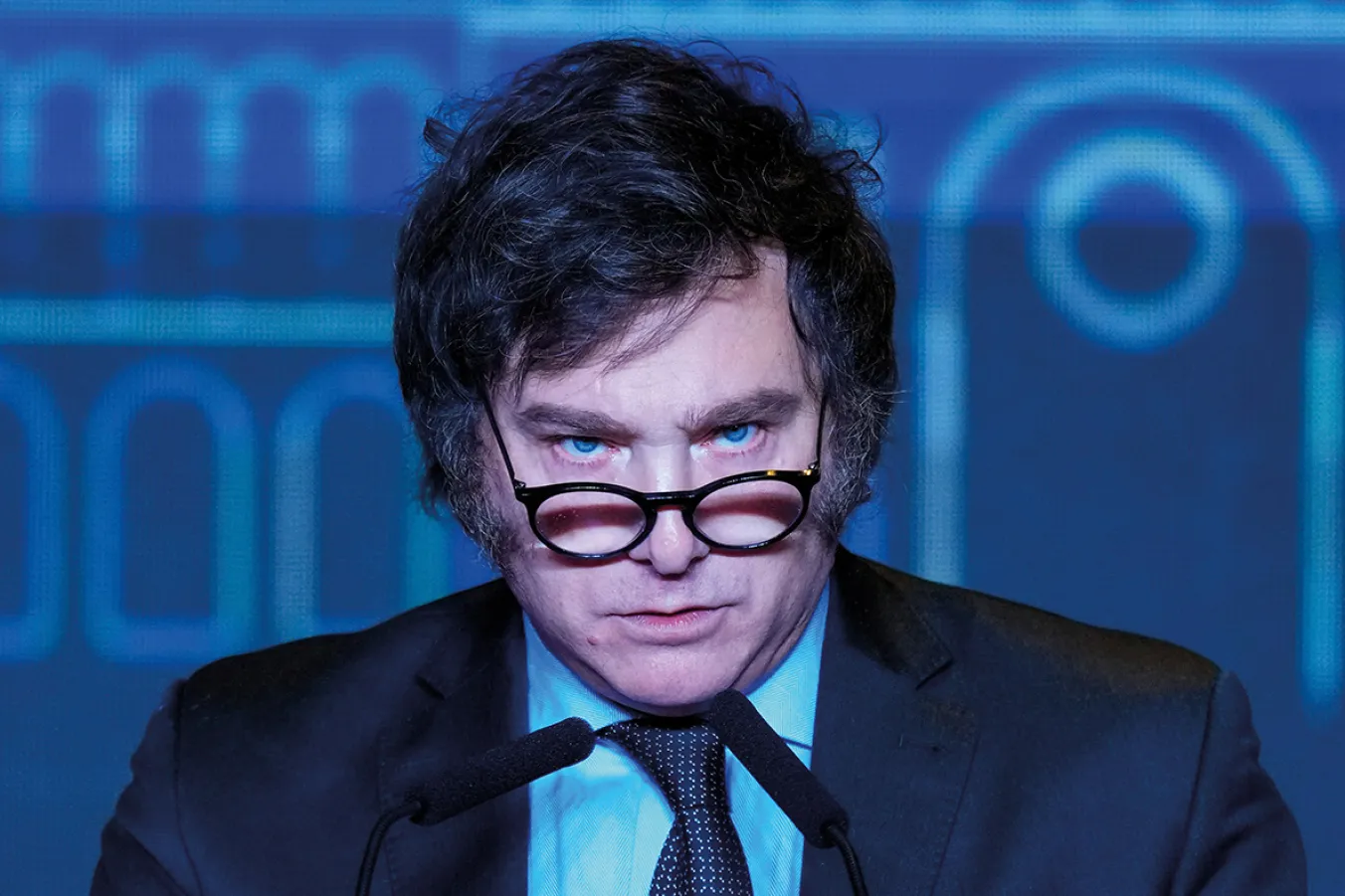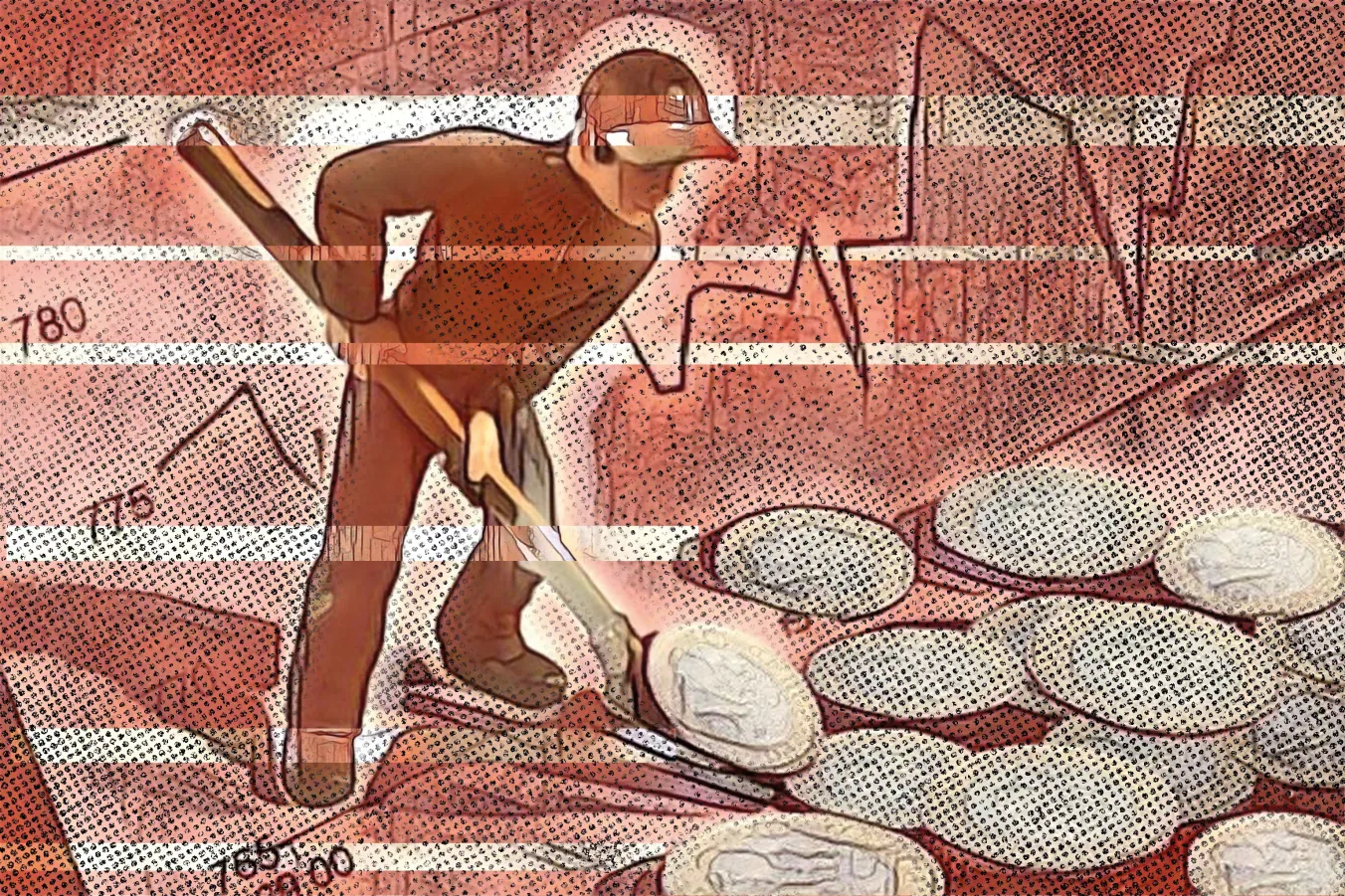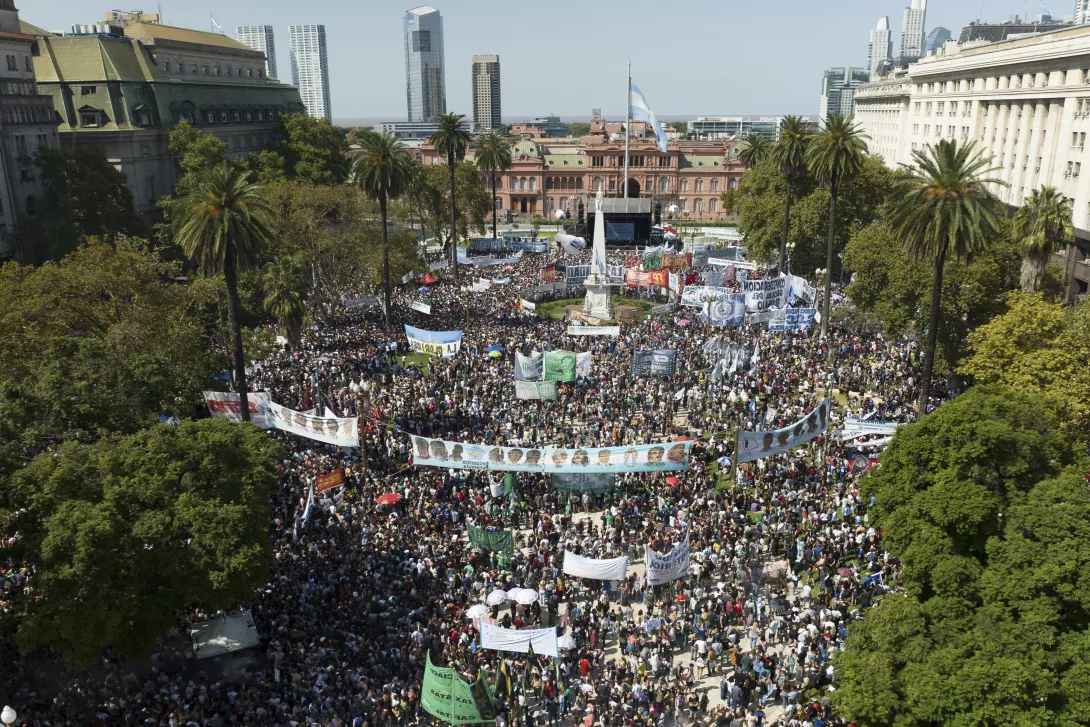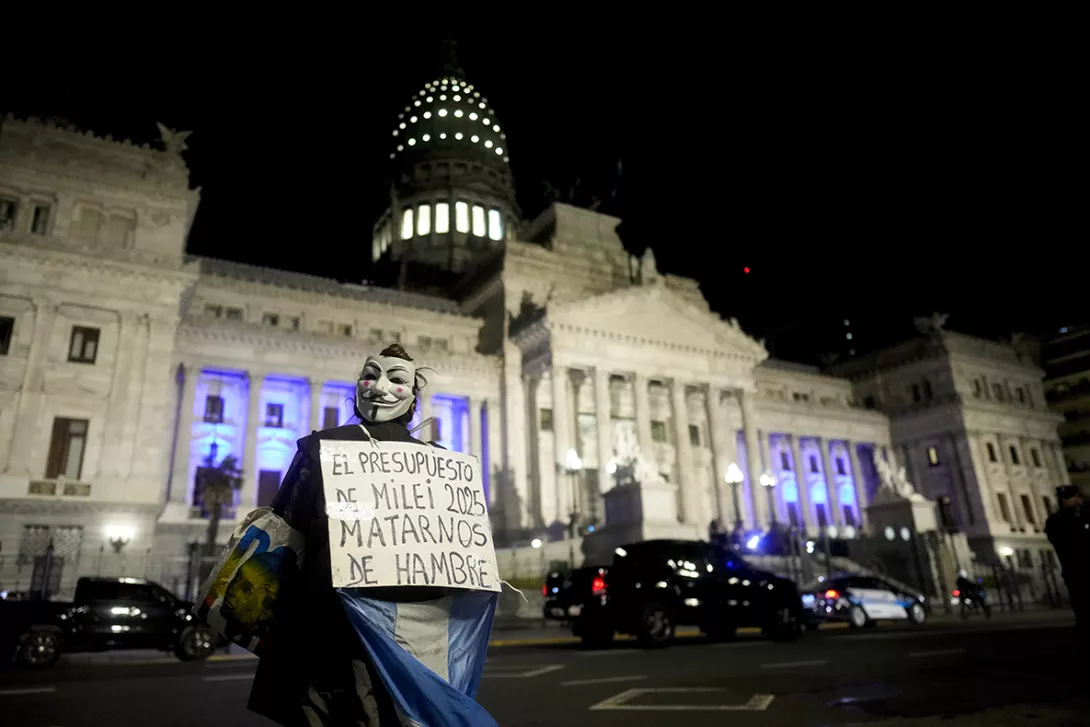VIJAY PRASHAD examines why in 2018 Washington started to take an increasingly belligerent stance towards ‘near peer rivals’ – Russa and China – with far-reaching geopolitical effects
Milei’s neoliberal nightmare degrades Argentina
The last six months have seen the self-styled ‘libertarian capitalist’ bulldoze workers’ rights and national sovereignty, as his crazed shock-doctrine economic reforms face growing resistance on the streets, writes BERT SCHOUWENBURG

FOLLOWING the 1973 US-backed military coup in Chile, the country became a testing ground for neoliberal economics that was forcefully administered at the point of a bayonet.
Fifty years later, on the other side of the Andes, Argentinian President Javier Milei is seeking to introduce sweeping economic reforms that make the Chilean model seem relatively tame by comparison.
Unlike Augusto Pinochet in Chile, Milei did not seize power by force but was elected by a substantial majority in November of last year.
More from this author

Global South governments’ sovereignty and ability to decide future economic policy are severely compromised by signing free trade agreements, whose terms are heavily weighted in favour of the already wealthy countries of the global North, writes BERT SCHOUWENBURG

BERT SCHOUWENBURG details how the libertarian, radical-right president’s shock doctrine has pushed millions into poverty while dismantling the state and aligning with US imperialism and Israeli slaughter

As AI advances, the case for universal basic income gains traction, challenging traditional notions of labour organising while offering a viable solution to the decline in the need for work and workers, argues BERT SCHOUWENBURG

It’s not some question of being realistic yet effective over being compassionate but economically incompetent: there is absolutely no material basis to continue to measure societies by their GDP, explains BERT SCHOUWENBURG
Similar stories

BERT SCHOUWENBURG details how the libertarian, radical-right president’s shock doctrine has pushed millions into poverty while dismantling the state and aligning with US imperialism and Israeli slaughter

After 100 days of a Javier Milei presidency, hundreds of thousands of Argentinians marked the anniversary of the 1976 coup amid growing revisionism of the brutal dictatorship years. BERT SCHOUWENBURG reports










